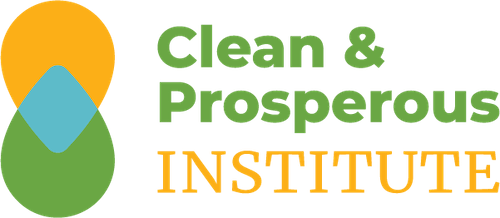Clean & Prosperous Institute
Study Mission 3.0: Quebec
May 23-26, 2023
Airplane reading
Our time in Québec promises to be informative and inspiring, with tours and briefings that will elevate our understanding of what’s possible in our transition to a clean economy.
To get things started, here are some fast facts about how Québec and Washington compare, and a few recent, relevant articles about significant happenings in Québec and Washington, to read on the plane (perhaps after you’ve finished the crossword puzzle at the back of the in-flight magazine).
Things happening in Québec:
- Hydro-Québec posts record $4.56-billion profit for 2022 | Montreal Gazette
- Nova Bus makes history by winning a bid for an order of up to 1,229 long-range battery electric buses in Quebec – Novabus
- Alstom’s Coradia iLint, the world’s first hydrogen-powered passenger train, will demonstrate green traction in Quebec | Alstom
- Canada Infrastructure Bank invests $277M in Varennes biofuels facility | Montreal Gazette
- Hard choices will have to be made, energy minister warns Quebecers | Montreal Gazette
- Quebec sets out plan to reach 60% of greenhouse gas reduction target by 2030 – Montreal | Globalnews.ca
- The third edition of the province’s green plan details increased funding for greenhouse gas reduction and climate change adaptation first announced in the March provincial budget. The province this year added $1.4 billion for the plan, bringing the total to $9 billion over five years.
- More than $500 million to support the construction of charging stations for electric vehicles, as the government looks to bring the number of electric vehicles on Québec roads to two million.
- The plan also includes $1 billion to reduce the carbon footprint of buildings, which are responsible for almost 10 percent of the province’s greenhouse gas emissions
- About $215 million of that money will help fund projects for thermal waste treatment — methods that transform waste into energy that can be used for such things as heating.
- And here’s a good background primer on Québec’s Cap system
Things happening in Washington:
- New $800m Sustainable Aviation Fuel Plant Planned for WA
- The Road Ahead for Clean Trucks (MHD newsletter/blog)
- EV charger installation is amping up | by Governor Jay Inslee | Washington State Governor’s Office | May, 2023 | Medium
- WA budgets $2B to cut greenhouse gas emissions; here’s where money will go
Fast Facts about Québec and Washington:
Population
| Washington | Quebec |
| 7.7 million | 8.5 million |
Energy sources
-
Quebec: https://www.cer-rec.gc.ca/en/data-analysis/energy-markets/provincial-territorial-energy-profiles/provincial-territorial-energy-profiles-quebec.html
- 94% hydro, 5% wind, 0.7% biomass/geothermal
- 212.9 TWh produced
- Quebec is the largest producer of electricity in Canada and had an estimated generating capacity of 46,380 megawatts (MW) in 2019. This includes Canada’s largest hydro plant, the 5,616 MW Robert-Bourassa facility in northern Quebec.
- Quebec’s GHG emissions in 2020 were 76.2 megatonnes (MT) of carbon dioxide equivalent (CO2e). Quebec’s emissions have declined 10% since 1990 and 12% since 2005.
- The largest emitting sectors in Quebec are transportation at 39% of emissions, industries and manufacturing at 26%, and buildings (residential and commercial) at 12%
-
Washington:
https://www.commerce.wa.gov/growing-the-economy/energy/fuel-mix-disclosure/ - In 2020: Hydro 55% (fluctuates depending on year), Nuclear 4%, Wind 5%, Methane 13%, Coal 10%
- https://www.eia.gov/state/?sid=WA
- “By capacity, the Grand Coulee Dam on Washington’s Columbia River is the largest power plant in the United States [6.8 MW], and the seventh-largest hydroelectric power plant in the world. It typically supplies about 21 million megawatthours of electricity annually to 8 western states and parts of Canada.”
- “Washington has the fifth-largest crude oil refining capacity in the nation and can process a combined total of almost 650,000 barrels of crude oil per day at the state’s 5 refineries.”
- “In 2021, Washington consumed less natural gas than about half of the states, and in 2020, the state used less per capita than all but four other states and the District of Columbia. The largest share of the state’s natural gas comes from Canada, either directly or through the state of Idaho.”
- https://ecology.wa.gov/Air-Climate/Reducing-Greenhouse-Gas-Emissions/Tracking-greenhouse-gases/GHG-inventories
- “New data on Washington’s greenhouse gas emissions show emissions rose almost 7% in 2019 from 2018, reaching 102.1 million metric tons (MMT) of carbon dioxide equivalent (CO2e).
Transportation remains the largest contributor of greenhouse gas emissions in Washington showing a slight increase from 2018 to 2019 of less than 3%, or 4.8 MMT, reaching 40.3 MMT of CO2e. Overall, transportation’s share of statewide emissions dropped from 44.9% in 2018 to 39% in 2019 while the share from the electricity sector increased.” - “Emissions from electricity generation grew almost 33% from 2018 to 2019. The greatest contributor to the 2018–2019 emissions increase is the mix of fuels used in the electricity sector. This sector’s emissions rose from 16.5 MMT CO2e in 2018 to 21.9 MMT CO2e in 2019, an increase of 5.4 MMT CO2e.
This year’s rise is in response to reduced availability of hydropower generation and a corresponding increase in fossil fuel generation to meet demand. However, 2020 data is available for the electricity sector, and it shows that 2020 emissions in this sector fell 35% to 14.2 MMT CO2e. This is 16% below the 1990 level (16.9 MMT CO2e) for this sector.”
Stanley Cups
- Though it’s been 30 years since the Canadiens (or any Canadians, for that matter) have hoisted Lord Stanley’s trophy – and that drought will not be ended this year, with Dallas, Las Vegas, Florida, and Carolina still alive in the playoffs – Montreal has won 26 times (can you say “dynasty”?) while Seattle has won it all just once – with a win over Montreal in 1917 (“Go Metropolitans!”)
- Montreal wins: 1916 (over the Portland Rosebuds), 1924, 1926 (Montreal Maroons), 1930, 1931, 1935 (Maroons), 1944, 1946, 1953, 1956, 1957, 1958, 1959, 1960, 1965, 1966, 1968, 1969, 1971, 1973, 1976, 1977, 1978, 1979, 1986, 1993.
- Seattle win: 1917 (Seattle Metropolitans over the Montreal Canadiens)
- In 1919 Seattle and Montreal faced off again, but the series was cancelled after the fifth game (series stood at 2-2-1) because of the flu epidemic. The Stanley Cup was not awarded that year. (Per the Seattle Times: “The greatest ice hockey series ever staged ends in a draw”). Fascinating. Is it too late to start a petition to resume that series, now that Seattle again has a team???
Thank you to our trip sponsors!








